Iconic Movie Characters: Tuco Ramírez (The Ugly)
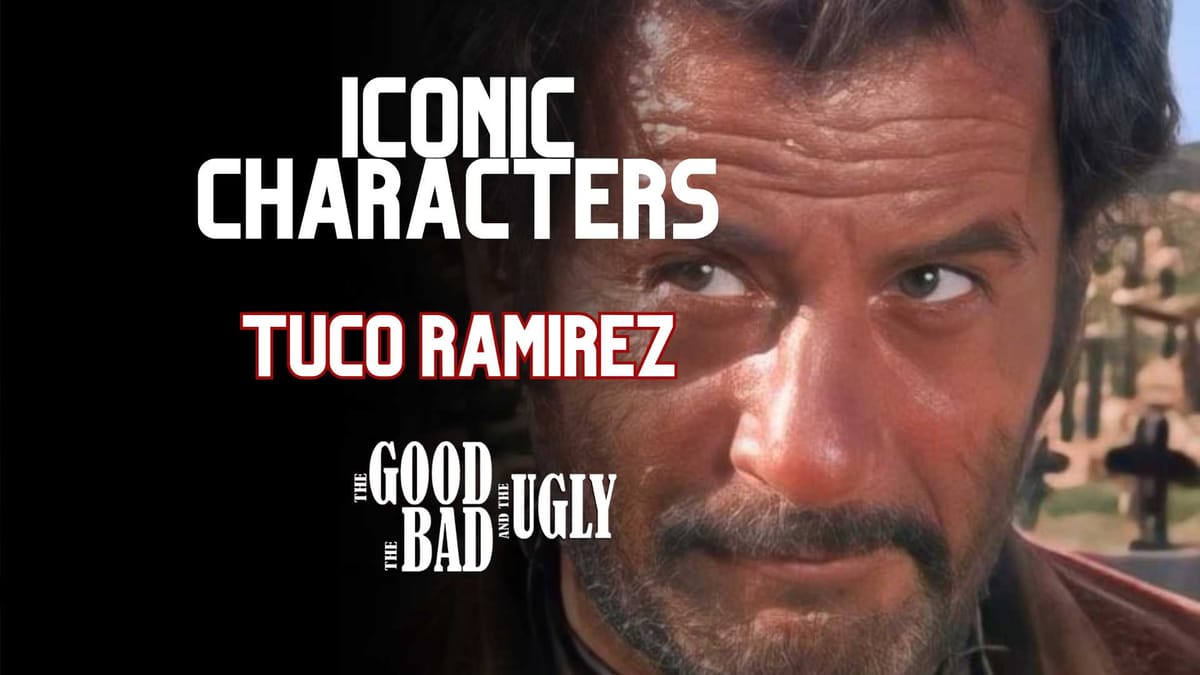
"There Are Two Kinds of People in This World..."
Few characters in cinema are as iconic and memorable as Tuco Ramírez, the villainous protagonist played by Eli Wallach in Sergio Leone's classic 1966 Spaghetti Western, The Good, The Bad and The Ugly. With his scruffy appearance, signature cheroot, and penchant for quoting "There are two kinds of people in this world...", Tuco left an indelible mark on film history. Let's delve into what makes him such a fascinating and beloved character.

Early Life and Becoming a Bandit
Tuco Benedicto Pacífico Juan María Ramírez was born in Mexico to a family that lived in poverty. When he was around 10–12 years old, his brother Pablo left to become a priest, while Tuco stayed behind with their parents. Seeing limited prospects to escape destitution through honest means, the young Tuco drifted into a life of crime and banditry.
As he recounted in a confrontation with Pablo later in life:
"You talk of our mother and father. You remember when you left to become a priest? I stayed behind! I must have been ten, twelve. I don't remember which, but I stayed. I tried, but it was no good. Now I am going to tell you something. You became a priest because you were... too much of a coward to do what I do!"
By the time of The Good, The Bad and The Ugly, Tuco's mother had passed away years ago. His estranged father died just before the events of the film, and Pablo attempted to contact the notorious bandit to inform him, even though he knew there was little chance Tuco would show up.
-Source: Fandom.com

Meeting Angel Eyes and Blondie
The movie opens with Tuco escaping a posse of bounty hunters by blowing up a bridge. He makes his way to a remote saloon, not realising Blondie (the Man with No Name) is trailing him. The pair have a tense standoff until they are forced to take cover from more bounty hunters. After dispatching the would-be captors, the gunslingers reveal they were once partners in a money-making adventure before Blondie abandoned Tuco and left him tied to a cactus to collect his share of a bounty.
Continue Reading
Blondie takes the badly tortured Tuco to a rundown desert shack, beats him savagely for information about a hidden cache of Confederate gold. It's at this point the narrative splits to introduce Angel Eyes (Lee Van Cleef), a ruthless mercenary who has been contracted to retrieve the fortune.
It emerges the only man who knows the name on the grave where $200,000 is buried is Bill Carson, a merciful soldier who spared Angel Eyes' life during the Civil War. The problem is Carson is long dead, one of the countless casualties amassed over the course of the bloody conflict. Only three men - Tuco, Blondie, and Angel Eyes - are hot on the trail of the fortune.

The Uneasy Partnership Between Blondie and Tuco
What ensues is an uneasy partnership and toxic bromance between the savvy, unscrupulous Blondie and the bombastic, unpredictable Tuco. The "Ugly" may be unstable and incompetent at times, but his ability to survive by the skin of his teeth repeatedly proves invaluable. Not to mention he has information Blondie covets.
Continue Reading
The duo constantly bickers, betrays, and backstabs one another like cat and mouse. At the same time, they share an unmistakable bond forged through hardship and gunsmoke. Their relationship dynamic is hilarious and tragic in equal measure.
Some of the most iconic scenes highlight their dichotomous partnership. Like when Blondie engineers an elaborate scheme to collect a $3000 bounty on Tuco, only to rip up the payout check and free him. Or when Tuco turns the tables to get "the drop" on Blondie, only to be outmaneuvered yet again.
Their culminating confrontation at the cemetery exemplifies their love-hate kinship. As Angel Eyes and Blondie face off, Tuco emerges from the grave dragging the marked coffin, shouting: "Hey Blondie! You know what you are? Just a dirty son of a..." before his tirade is cut short by a barrage of bullets.

Comedy and Quotability
It's impossible to overstate how much Eli Wallach's performance contributed to the wild popularity of Tuco. The way he delivered every line with gusto and swagger, punctuated cursing with boisterous laughs, and weaved iconic quotes and phrases into his vernacular.
Leone loved how Wallach brought a comedic eccentricity to Tuco's already outlandish persona. The director even encouraged the actor to improvise and riff on scenes, like assembling a new gun out of spare gun parts, despite admitting he knew very little about firearms.
Of course, Tuco's most enduring contribution is enshrining "There are two kinds of people in this world..." as a pop culture mantra. The quote originally came from Robert Elliot Gonzales. But Tuco spun countless riffs on it, to the point where it became inextricably linked to his character.
Some gems include:
"There are two kinds of people in the world, my friend: Those with a rope around their neck, and the people who have the job of doing the cutting."
"There are two kinds of spurs my friend, the ones coming from the door..and the ones coming through the window."
Even by the over-the-top standards of a Spaghetti Western bandito, Tuco took the art of malapropism and quotability to operatic new heights. It's surely a big reason he remains so beloved to this day.

Box Office Success and Awards
The Good, The Bad and The Ugly was a smash hit upon release, earning over $25 million—the equivalent of over $190 million today adjusted for inflation. It was the highest-grossing Italian film for many years and cemented Clint Eastwood, Lee Van Cleef, and Eli Wallach's status as global movie stars.
Tuco's popularity also propelled Eli Wallach from a character actor to a household name. Remarkably, he had turned down the role multiple times before Leone personally lobbied him to take it on. Wallach deservedly earned a BAFTA nomination for his riotous yet riveting performance.
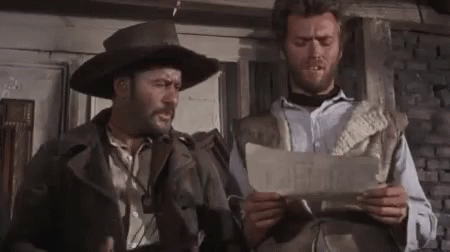
Despite being a genre film from an Italian director shot in Spain, The Good, The Bad and The Ugly proved immensely influential on generations of filmmakers. It expanded the possibilities of what a Western could be, drawing on Hollywood traditions while pulverising them into something unpredictable and revolutionary.
Its visual style and grand thematic scope have inspired everyone, from Quentin Tarantino to international auteurs. Its nihilistic yet oddly moral worldview (where violence is the only true arbiter) seems almost ahead of its time, presaging revisionist Westerns like Clint Eastwood's Unforgiven.

Tuco's Legacy
Eli Wallach cherished his time working with Sergio Leone until the very end. The director and actor remained close friends, with Leone considering Tuco his favourite character he ever created. Tragically, Leone passed away in 1989 at the young age of 60, which devastated Wallach.
The actor himself lived to the ripe old age of 98, continuing to work in film and theatre right up until his passing. He never forgot his days in the searing Spanish dessert, perfecting the character that would become his calling card.
Tuco's quixotic personality and picaresque adventures continue to enchant audiences. It's hard to imagine another character delivering lines like this with such infectious panache:
"When you have to shoot, shoot, don't talk!"
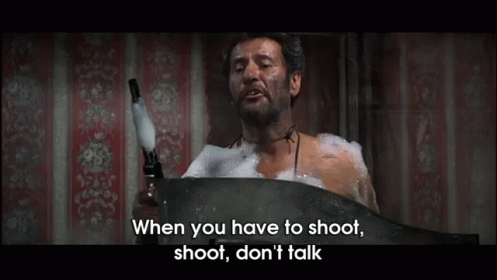
Tuco was a product of the American West by way of Italian pulp cinema—crude yet charismatic, grating yet endearing. He defied simple labels as a hero or villain. Overall, he was the embodiment of Leone's cynical yet strangely moral cinematic universe.
In short, Tuco was and remains The Ugly, The Bad, and The Good (or Me as he entitled his biography), all in one chaotic package. We wouldn't have it any other way.
Tweet
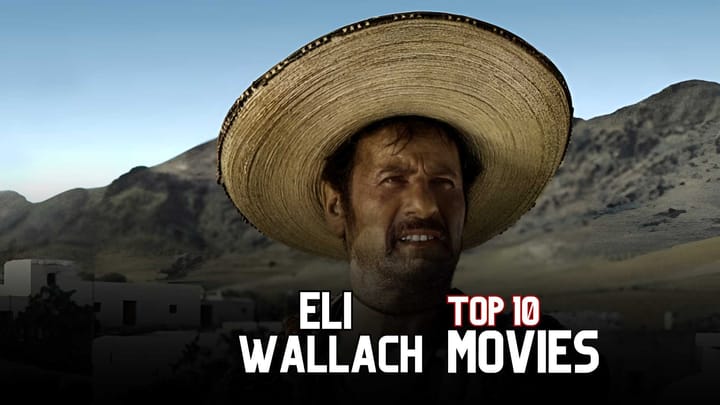
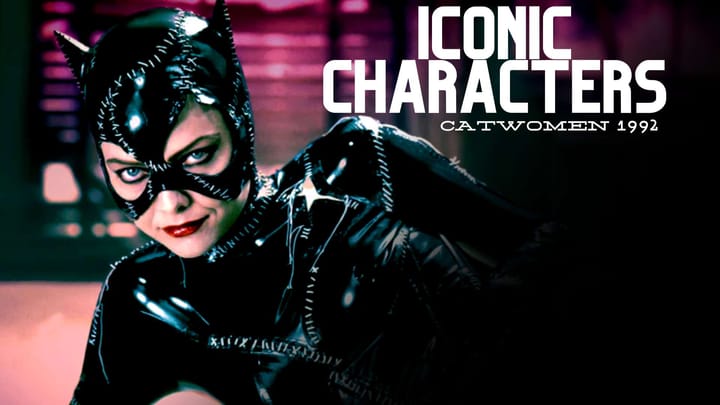
Comments ()